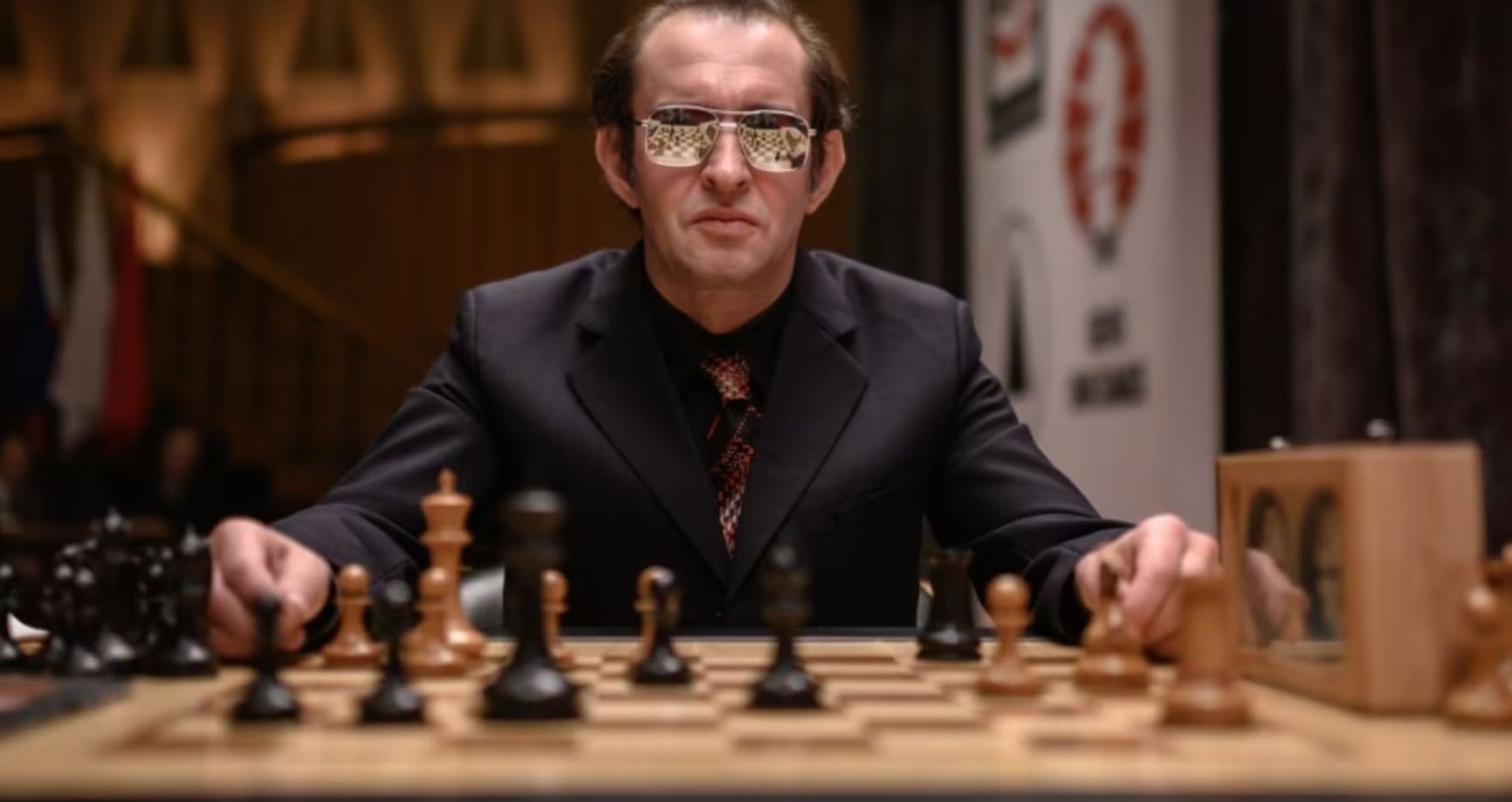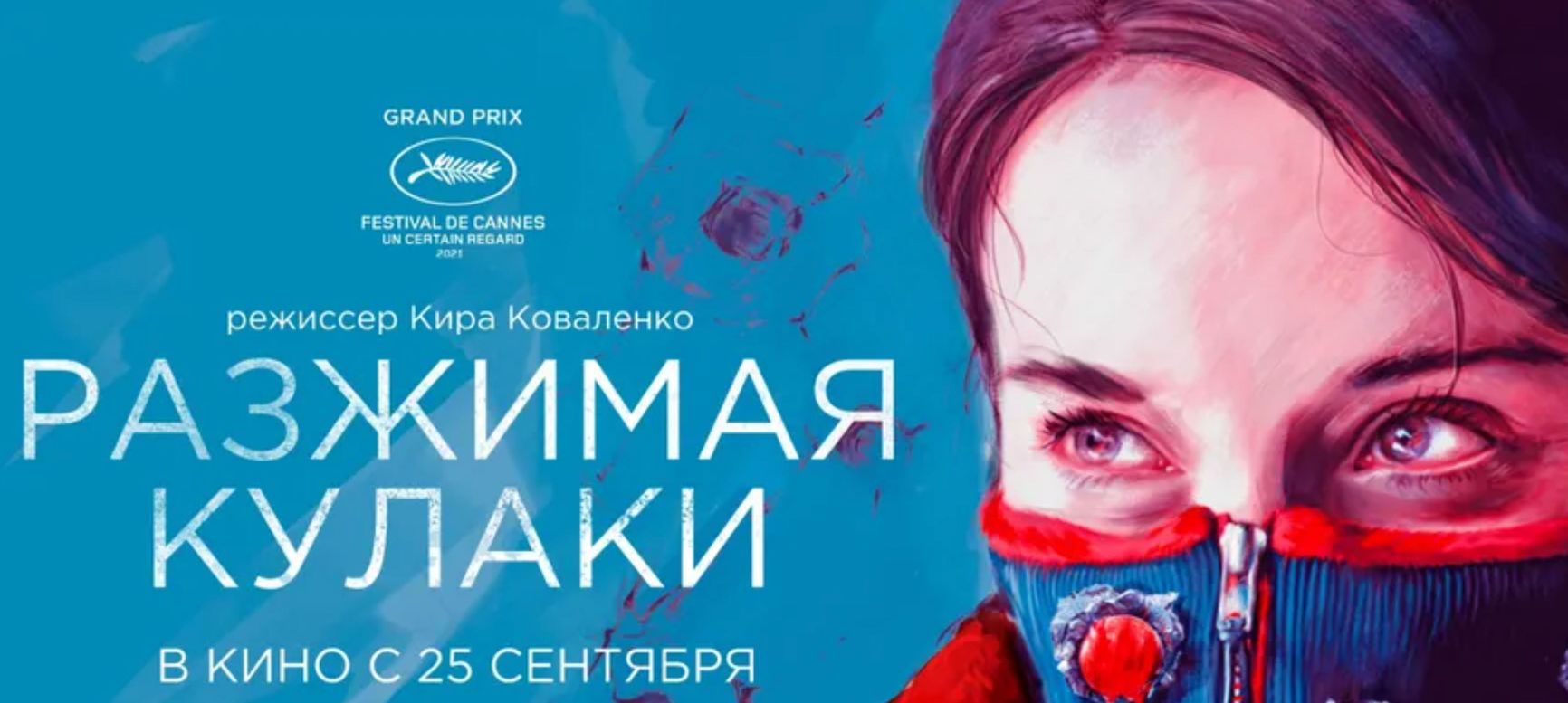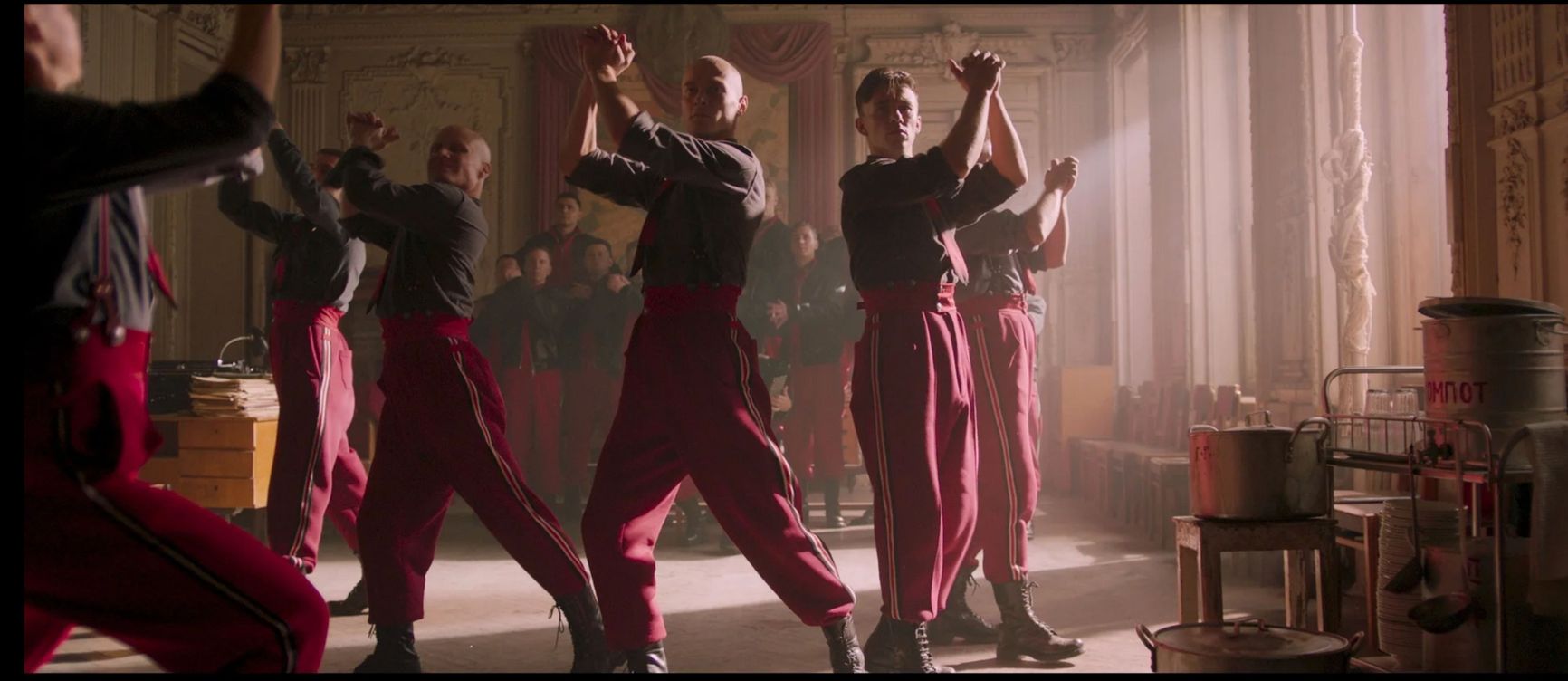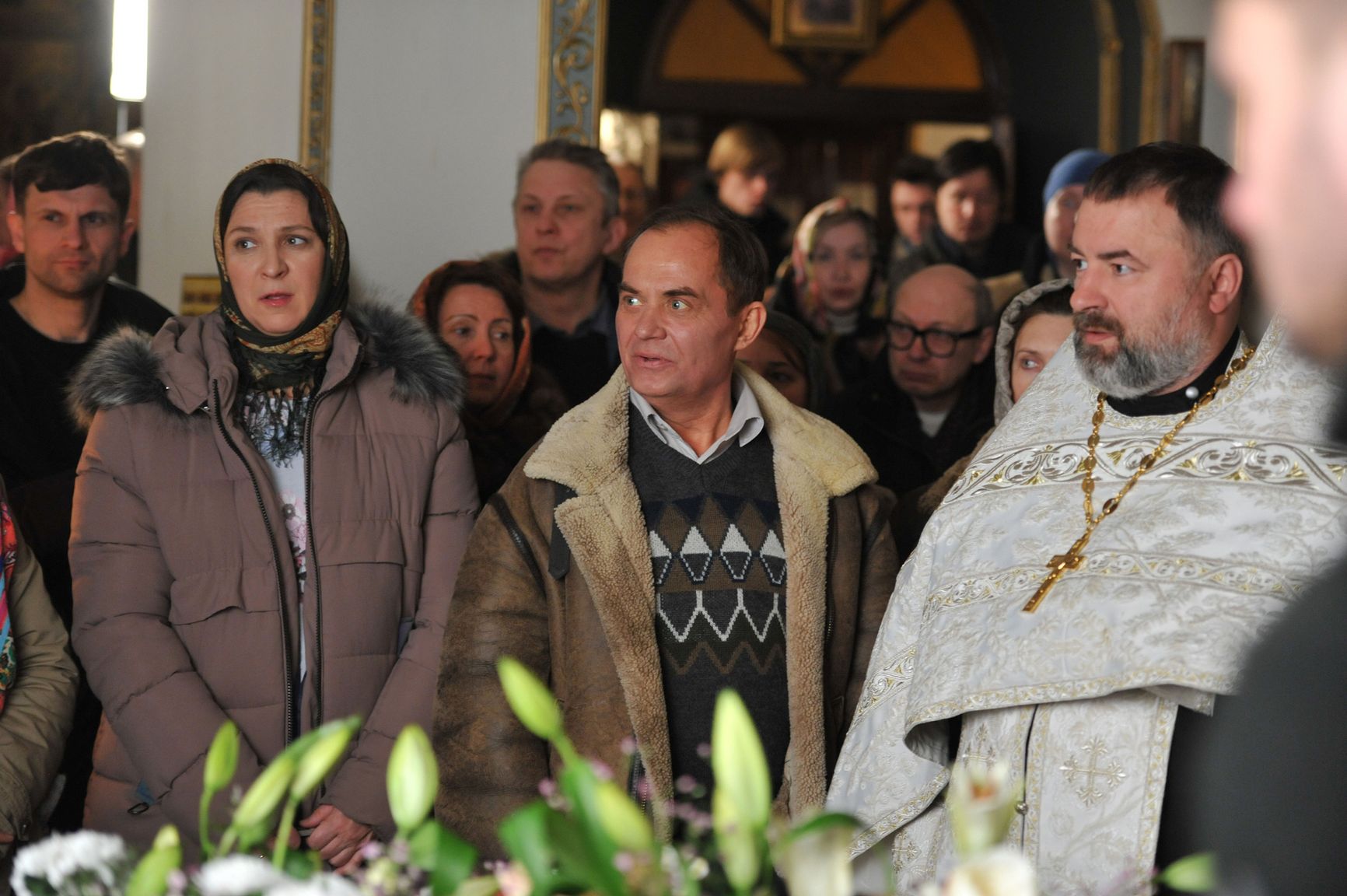

Experts of the White Elephant National Film Experts and Film Critics of Russia Award decided against awarding annual prizes amid war. Instead, they picked the best and worst films that were given the White Elephant award over the 25 years of the award's existence. Yet Mikhalkov's Golden Eagle was awarded on schedule, although the ceremony was less pompous than usual. The Insider discusses how the war has changed Russian cinema, and why the Cheburashka movie ended up winning at the box office.
At the end of 2022, the experts of the White Elephant National Film Experts and Film Critics of Russia Award made a statement: “We were going to celebrate the 25th anniversary of our award this year. But the tragic events of last year led us not only to forego the celebration, but also to question whether it’s the right time to award prizes for 2022 films. February 24 divided our lives into “before” and “after.” Films that were being shot during a relatively peaceful period ended up mostly irrelevant by the time their production was completed.”
In contrast to White Elephant, another award established by the National Academy of Motion Picture Arts and Sciences of Russia held its Golden Eagle award ceremony with less pomp, primarily due to the absence of its main sponsor and inspirer Nikita Mikhalkov, who had just checked out of the hospital, but still maintained its imperial corporate style and named the drama about the Karpov-Korchnoi chess confrontation “World Champion” (directed by Alexei Sidorov) as the main film of the year.
The founders of the White Elephant Award frankly admitted:
“We attempted to preserve the award. We collected and dispatched the films, conducted a trial rating vote for the year. It showed a deformation of cinematography, the absence of leading films, the blurring of the evaluation criteria. In science, the absence of a result is still considered a result. It is our duty as professional experts to state this sad result of the cinematographic year.”
As is their wont, the Mikhalkov academy members bundled together several big-budget, mostly government-funded “patriotic blockbusters” (at least four of the five films shortlisted for the main award) and chose the one dealing with the hottest topic of the day.

Konstantin Khabensky playing Viktor Korchnoi, a shot from the movie “World Champion”
“World Champion” is set in the Soviet era, featuring not just evil forces, but evil forces in the form of the “collective West,” which is not only helping former Soviet chess player Viktor Korchnoi, caricatured by Konstantin Khabensky, to finally become a “scumbag and a renegade,” but is also trying to prevent, particularly with the help of psychic powers and other diabolical stuff, the Soviet world chess crown contender Anatoly Karpov from winning in the legendary 1978 match in Baguio City in the Philippines.
The “Collective West” helps former Soviet champion Korchnoi, caricatured by Khabensky, to become “a scumbag and a renegade”
Making a film, as you know, is a lengthy and technically demanding process. It is impossible for a movie to address the events of February 24 with the immediacy of propaganda TV. Especially if the film aspires to reach a large audience (especially young people) used to Hollywood context in movies. Especially if, as part of this competition – which is now mostly virtual due to the imposition of sanctions – it is necessary to spend a lot of money on the film’s production (and theatrical release).
All the more so because all such attempts to focus on the hottest topics of the day have so far ended in failure, as was the case with the 2008 film about the Georgian-South Ossetian conflict, “August. The Eighth” (2012, directed by Dzhanik Faiziev) with a $19 million budget. The movie earned only half of that amount (and this despite the fact that it was distributed not only in Russia, but also in the other CIS countries, and that the box office situation was not as dismal as it is today).
Or take the lyrical comedy “Crimean Bridge” (2018), a film much lesser in the scope and scale of generalization, made by the family team of propagandists, Simonyan and Keosayan, which in its first year of distribution in Russia was watched by only 300,000 viewers, and which still has the abysmal rating of 2.9 out of 10 on the Kinopoisk website.
Of course, a reprogramming of the industry is underway. And it may even seem bureaucratically clumsy. Surprisingly, over the past year the Ministry of Culture seems to have issued a single directive devoted to the new agenda (and that formulated in a vague manner), announcing the submission of applications for subsidies (up to 100 million rubles) “related to the production of feature films with a socially important agenda regarding global geopolitical and social changes in the history of modern Russia.”
Over the past year, the Ministry of Culture seems to have issued a single directive devoted to the new agenda
The situation looked quite ridiculous: the ministerial announcement was dated August 1, and the deadline was August 11. It resembled a short-distance sack race with a good prize at the finish line. One had to think really hard in order to earn 100 million patriotic rubles in ten days.
On the other hand, the reprogramming of the film industry without overly drastic steps has proceeded systematically since 2012. The function of supporting the arts is gradually being replaced with the support of propaganda and advancement of “etatist” values (as understood by officials and deputies). This process is primarily connected with the name of Vladimir Medinsky, who became Minister of Culture that year.
Under the leadership of the current Minister of Culture, Olga Lyubimova, a legacy of censorship has been perpetuated. Initially operating through covert means, the censorship has now become overt and has resulted in a culture of subservient self-censorship. Unfortunately, this has proven to be even more effective, de facto silencing any discussions of relevant contemporary issues.
Under the leadership of the current Minister of Culture, Olga Lyubimova, a legacy of censorship has been perpetuated
It is noteworthy that in recent Russian cinema of the last decade, films that tackle the events of the Kursk submarine, the terrorist attacks in Beslan or Dubrovka tend to focus on their psychological aftermath, only hinted at, rather than the events themselves. Examples include “Shame” (2013, directed by Yusup Razykov) and “Unclenching Fists” (2020, directed by Kira Kovalenko). If the connection is made explicitly, as in “The Conference” (2020, directed by Ivan Tverdovsky), the film is likely to face denial of financial support from the state.

Movie poster for “Unclenching Fists”
The film “Kursk” (2018, directed by Thomas Vinterberg), on a subject that is especially painful for Russians, is being made by a broad coalition of Europeans, practically by the “collective West.”
By the way, the best internationally acclaimed Russian filmmakers, such as Andrei Zvyagintsev, Kirill Serebrennikov, Vasily Sigarev, Kantemir Balagov, and Kira Kovalenko, have recently produced (or failed to produce any) movies without state support.
The best internationally acclaimed Russian filmmakers have recently produced (or failed to produce any) movies without state support
Alexander Sokurov is currently in a prolonged and public conflict with the Ministry of Culture. Similarly, the absence of films from Sergey Loban, director of the critically acclaimed “The Shapito Show” (2011), for the past ten years is a mystery.
While the concrete effects of Russia's “special military operation” in Ukraine may not yet be evident in the film industry, its impact can already be seen in the realm of distribution. The first signs of this new reality are becoming apparent.
Last year's most notable film festival hits, “Tchaikovsky's Wife” by Kirill Serebrennikov (presented at the Cannes IFF) and “The Tale” by Alexander Sokurov (presented at the Locarno IFF), have yet to receive a clear theatrical release and remain inaccessible to audiences. The same is true of another high-profile film by Natasha Merkulova and Alexei Chupov, which was part of the official program at the Venice IFF two years ago and won the White Elephant award in 2021.

A shot from the movie “Captain Volkonogov Fled”
It is possible to attribute these events to the political views of individual directors or actors, such as the well-known anti-war sentiments of Serebrennikov and Sokurov. Under the current political climate in Russia, it is unlikely that Serebrennikov and Zvyagintsev will be able to return to the country. However, the political connection in these circumstances is not a comprehensive explanation, however paradoxical it may seem.
“Captain Volkonogov...” and “Fairy Tale” were not released due to the reluctance of their producers and directors, possibly driven by fear of controversy. Despite having a distribution certificate, Merkulova’s and Chupov's film has not been released. On the other hand, Sokurov has declined to get one due to principles rather than any specific fears.
At the same time, the Ministry of Culture strongly advised the creators of the lesser-known film about Sergei Yesenin, “December,” not to apply for a distribution certificate (as a result, the October release of the film was even cancelled). This is particularly noteworthy as the film's director, Klim Shippenko, has a proven track record of success with his previous films “Text” and “The Serf.” In October 2021, Shippenko and Yulia Peresild embarked on a journey to space to shoot “Challenge,” which is now in the final stages of production. If it were not for the current political climate, Shippenko's accomplishments would have undoubtedly established him as Russia's top film director.
But the prestige of the country (the first filmmakers in space!) turned out to be a less weighty argument than the fear of the security services, who, God forbid, could have considered that the Chekists in the film about Yesenin turned out to be too bloody (and this was exactly the reason for the ban).
The prestige of the country (the first filmmakers in space!) turned out to be a less weighty argument than the fear of the security services
The banning of the 12-episode comedy series “Comrade Major,” produced for online platforms by another famous director, Boris Khlebnikov (“Arrhythmia”), is also directly connected to the influence of the siloviki. The principal photography of the series ended back in 2021, and by a sad coincidence the lead actor Yevgeny Syty passed away last March. The premiere date is still to be determined.

A shot from the TV series “Comrade Major”
However, it is not surprising when one reads the show's sarcastic synopsis: “San Sanych Kuleshov is a sarcastic portrayal of an FSB Major working in the wiretapping department. For years, Sanych was part of the state machine, performing his duties without questioning. However, after reaching the age of 50, he realizes that people need help, not surveillance, and transforms into a secret hero who does good deeds without being asked.”
The disappearance of movies and actors, particularly young and male, is a growing concern. In response, cultural officials have initiated inspections in theaters to verify the presence of conscription-age actors. Because it's suspicious that these actors keep appearing in social media posts set against the backdrops of Istanbul and Berlin.
One paradoxical example is a 25-year-old filmmaker (we cannot give his name for ethical reasons) who left the country in March. His black comedy film had just been released (the director was absent at the premiere), and shortly after that he won an award at an international horror film festival for his previous film. That proved to be a decisive factor: after a few months of forced stay in Batumi, the director signed a contract with a division of Columbia Pictures in Hollywood.
Another open example is Kantemir Balagov, who has been gearing up for shooting his English-language debut in the USA since October. The film explores the complex relationship between a father and son from the diaspora of Kabardian migrants in New Jersey.
Filmmakers, whether young or established, need an open world to thrive, not a national prison-cell. Timur Bekmambetov sold his share in Bazelevs, one of the seven major studios funded by the Russian Federal Cinema Fund, in December of last year to focus exclusively on American productions.
Filmmakers, whether young or established, need an open world, not a national prison-cell
By the way, Kantemir Balagov’s film is being produced by Alexander Rodnyansky, also a member of all kinds of film academies and a winner of world-renowned film festivals, who was declared a foreign agent in Russia last October, having been previously banished from the country.
And this move led to the collapse of another very important pillar of the Russian film industry: for the first time in more than 30 years, the Kinotavr Film Festival was not held in Sochi. The collapse of Kinotavr, a significant pillar of the Russian film industry and with more than 30 years of history, marked a turning point. As the general producer and brand owner, Rodnyansky played a crucial role in the festival, which traditionally kickstarted new seasons in Russian cinema. The festival provided a platform for cinematography leaders to showcase their work, panel sessions and pitches to generate ideas, and a glamorous atmosphere for the screenings and business aspect, which fueled society columns for months to come.
Recognizing the importance of Kinotavr for the industry, Minister Lyubimova even allocated 60 million rubles to create a film festival analog, in response to producers' concerns expressed in letters. However, the idea was soon abandoned.

Olga Lyubimova, Minister of Culture of the Russian Federation
Apparently, the new contenders failed to prove their worth, or perhaps the notion of hosting a luxurious film festival along the Black Sea coast during a “special military operation” was deemed too frivolous and not suitable in these current circumstances.
As a result, a reminder of the beloved Kinotavr film festival, which was cherished by multiple generations and typically took place at the Winter Theater in Sochi, was the modest Winter Film Festival held at the Khudozhestvenny Theater in Moscow in December. It has limited capabilities and goals, and its English transcription name inevitably begins with the letter “Z.”
Natalia Mokritskaya, the director of the “Moscow Cinema” theater chain, took on the role of producer for the new festival. She is also the producer of another “patriotic blockbuster,” “First Oscar” (2021), directed by Sergei Mokritsky. Although it wasn't at all successful, the National Academy of Motion Picture Arts and Sciences of Russia considered “First Oscar” as a contender for the best film of the year alongside the film “World Champion.”
The movie “First Oscar” focuses on the creation of the legendary film “Defeat of German Forces at Moscow” during World War II by Soviet documentary filmmakers. The American version of the film, titled “Moscow Strikes Back,” went on to actually win an Oscar in 1943 among three other documentaries that showcased various geopolitical aspects of the war.

A shot from the movie “Defeat of German Forces at Moscow”
The film (including its American version) was initially titled “Our First Oscar”, but the word “our” was removed somewhere along the way. Despite this, the connection to America's main film award could not be hidden. After all, the picture's main message was to show how the Soviet Union had conquered the American film industry.
But when the film was finally released, the official rhetoric no longer celebrated the conquest of America, but rather vehemently denied it, including the prestigious Academy Awards ceremony. In 2022, Russia, represented by Nikita Mikhalkov, made headlines by publicly declining to participate in the Oscar race for the first time in nearly six decades.
This was a stark contrast to 1980, when Soviet tanks were rolling into Afghanistan. Half the world was boycotting the Moscow Olympics in protest, yet the U.S. Film Academy still awarded the gold statuette to Vladimir Menshov's film, “Moscow Doesn't Believe in Tears.”
However, these paradoxical times are no longer relevant. The traditionalist zealots are now keeping count of non-titular heroes in the first Oscar-nominated film, while the owners of movie theaters are more concerned with their financial losses from the removal of Hollywood content from the Russian market, with 30% of cinemas already closed.
In this dire situation, an old hero has risen to save the cinema industry. Cheburashka, the beloved children's character, has become the hero of a full-length fantasy film and has drawn in a record-breaking 17 million viewers in its first month of release, thanks to the lack of competition.

A shot from the movie “Cheburashka”
Despite the apparent success of Cheburashka as a domestically produced film, it's important to note that the character is rooted in the Soviet past, while the film technology was inspired by Hollywood. This formula is being used in similar fashion for other Russian films, such as “World Champion,” which combine Soviet heroes with Hollywood storytelling techniques.
This repetition has led to the production of numerous indistinguishable films about sports and war, with each one following the same formula established by “Legend No. 17” (2012). This has resulted in the Russian film industry becoming homogeneous, leading to 57 critics and film critics to not make any new evaluations or award laureates for the year 2022.
Instead, they decided to commemorate the 25th anniversary of the White Elephant Awards, by recognizing the best and worst films in the award's history. The critics expressed their sadness in their conclusion:
“In 2022, we are not making evaluations or choosing laureates. Instead, we are reviewing the past 25 years of our work and naming the best Russian films of the of the past quarter century. Our great sadness is also expressed in this decision.”
White Elephant's Best Movies
“The Outskirts,” 1998, directed by P. Lutsik
“Cuckoo,” 2002, directed by A. Rogozhkin
“Khrustalev, My Car!”, 1999, directed by A. German
“Piano Tuner,” 2004, directed by K. Muratova
“On Freaks and Men,” 1998, directed by A. Balabanov
“Elena,” 2011, directed by A. Zvyagintsev
“Free Sailing,” 2006, directed by B. Khlebnikov
“Taurus,” 2001, directed by A. Sokurov
“Arrhythmia,” 2017, directed by B. Khlebnikov
“Cargo 200,” 2007, directed by A. Balabanov
“Magnetic Storms,” 2003, directed by V. Abdrashitov
“Stoker,” 2010, directed by A. Balabanov
“The Sun,” 2005, directed by A. Sokurov
“The Shapito Show,” 2011, directed by S. Loban
“Playing a Victim,” 2006, directed by K. Serebrennikov
“Melody for a Street Organ,” 2010, directed by K. Muratova
“Buntings,” 2010, directed by A. Fedorchenko
“First Men on the Moon,” 2005, directed by A. Fedorchenko
“Old Women,” 2003, directed by G. Sidorov
“The Return,” 2003, directed by A. Zvyagintsev
“Koktebel”, 2003, directed by A. Popogrebsky, B. Khlebnikov
“Leviathan,” 2014, directed by A. Zvyagintsev
“Land of the Deaf,” 1998, directed by V. Todorovsky
“The Land of Oz,” 2015, directed by V. Sigarev
“I Also Want It,” 2012, directed by A. Balabanov
The Worst White Elephant Movies
(Films that received negative evaluation from today's perspective from more than half of the interviewed experts. These are not the worst films of the last 25 years, but the films that won the White Elephant award in various categories, which the film scholars and film critics (members of the expert council) decided to re-evaluate today.)
“Matilda,” 2017, directed by A. Uchitel
“The Barber of Siberia,” 1999, directed by N. Mikhalkov
“The Conductor,” 2012, directed by P. Lungin
“Odessa,” 2019, directed by V. Todorovsky
“9th Company,” 2005, directed by F. Bondarchuk
“The Brest Fortress,” 2010, directed by A. Kott
“Rita's Last Tale,” 2012, directed by R. Litvinova
“About Love,” 2015, directed by A. Melikyan
“Paradise,” 2016, directed by A. Konchalovsky
“A Story of an Appointment,” 2018, directed by A. Smirnova
“24 Hours”, 2000, directed by A. Atanesyan
“Brother 2,” 2000, directed by A. Balabanov
“His Wife's Diary,” 2000, directed by A. Uchitel
“Postman Tryapitsyn’s White Nights,” 2014, directed by A. Konchalovsky
“The Collector,” 2016, directed by A. Krasovsky
“A Walk,” 2003, directed by A. Uchitel